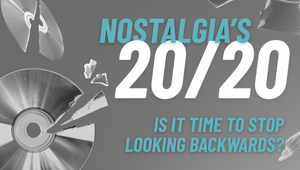
Is It Time For Brands To 'Stop Funding Hate'?

Last week, the ‘Stop Funding Hate’ campaign made headlines in the UK as Lego decided to pull advertising from the Daily Mail newspaper. The decision came after weeks of pressure on major brands to stop putting advertising in UK newspapers such as The Sun and the Daily Mail in response to what has been described as ‘hate speech’.
What’s more TV presenter and former footballer Gary Lineker, who has been the face of Walkers Crisps for 21 years, has responded to the campaign by putting pressure on Walkers about the brand’s decision to advertise in The Sun.
Rosey Ellum, the campaign’s co-founder, explains, “The Sun has used the term ‘cockroaches’ to define refugees and migrants. A certain columnist said that she would use gunboats to stop people coming across the Mediterranean. The Daily Mail has used the term ‘openly gay’ to criticise a judge. I think that these are examples of hate speech.”
But the campaign has drawn criticism from some quarters. In an article in the Spectator (a weekly political journal), the campaign was described as a ‘nasty, elitist campaign for press censorship’. How does Ellum respond to such an accusation?
“We are completely against press censorship, we don’t want any government involvement, we don’t want anyone to not buy the papers and we don’t ask the brands to influence papers either. We just want people to be able to choose not to have to fund them. Which is everyone’s right as a consumer.”
Clearly, there is a consumer appetite for brands to stop providing revenue for certain newspapers. Ellum explains that “lots of people have come out and said they’re going to buy more Lego now after the decision they made”. But are there any other reasons why brands should Stop Funding Hate?
“One thing that brands stand to gain is that they are living up fully to their ethics and their morals which they say they really do believe in. I think that staff at John Lewis, for example, do believe in those ethics.
“We think that, right now, [brands’] business model is basically broken, as they have a lot of customers who love these brands, such as John Lewis and the Co-Op, and their customers want to put their money there. What these customers don’t want is their money to go to these newspapers which are spreading hate. We think that brands need to align their ethics with their advertising. Additionally, taking the decision to stop advertising in the Mail and Sun could lead to new, more ethical advertising opportunities.”
On its Facebook page, the campaign stresses that it is non-political. Any brands supporting the campaign would not be making a political statement. But isn’t such a campaign inherently political?
“I don’t think the campaign is political because I don’t see human rights and equality as political, I think we see them as something everyone should have. So I think if you are right wing or left wing you can support human rights. This is more of a societal issue and a cultural issue than a political one.”
And yet, one does wonder as to the implications of the campaign’s success. What if a group with different, less liberal values were to attempt a similar operation? Ellum has faith that brands would take a balanced approach.
“If a far-right group, or any other political group, were to campaign on the issue to further their own gains, I would hope that companies and newspapers would see the difference. However, I do think that if any group wants to campaign on this, that's their choice and they're free to do so - as long as they're not causing hate or hate crime in the process. Customers, brands and newspapers would also have the choice whether they support them or not.”
In the short term at least, Stop Funding Hate is looking to build on its success. “I think our challenge now is to keep up the momentum, which we are absolutely doing so far. It is moving forwards, and I know that there are millions of people who agree with us so we just have to be creative, basically.”
Ultimately, however, the campaign’s success will be determined by the brands who support it. Whether more big brands will follow in Lego’s footsteps, for now, remains to be seen.















